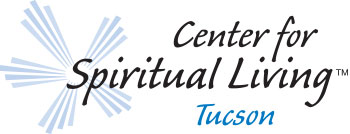Thoughts about Being Present in the Practice
I’ve been working with BrainHQ for over 250 days. I haven’t actually worked with it every single day, but I have spent at least 5 minutes playing the ‘brain games’ most days. An interesting thing that I’ve noticed is that I’ve gotten better at some of the games that I was particularly pitifully unskilled at in the early days of playing. I’ve also noticed a couple more things about myself that are more broadly applicable.
Brain HQ is a fairly fast paced game that’s mostly about attention and focus. Every time I let my mind wander, I miss the next puzzle. If I berate myself for missing that puzzle, then I fail at the next several puzzles too, because I’m more focused on being irritated with myself, than I am on staying engaged with the game. This is great feedback, because it tells me that I’ve shifted my focus from something that has potential benefit, to something that doesn’t.
When I was much younger, I remember experiencing this same feeling. When my piano teacher wanted me to perform in public, I was so tense about performing that if/when I made an error (when I would lose my place, or fumble some notes), I would get so flustered, it was all over. My ability to continue was trashed. I didn’t have the external support to help me work my way through my lack of belief in myself as a musician, and I didn’t have the internal support that would allow me to see a way through. I’ve always appreciated musicians and actors who could flub a line and recover. I now have words to describe what they do – they redirect their focus from what went sideways (aka ‘wrong’) to what they wanted to have happen.
This is a basic teaching or practice in what we do, or what anybody wants to do, when they are moving in the direction of our dreams. When we screw up, or lose focus, we pick ourselves up, and begin again. We do this as many times as it takes. Most of us would prefer to reach a state of advancement that we no longer stumble and fall, but I’m not sure how realistic that is. It may be that we reach a state where we simply recover faster, wasting less time on self-irritation.
In sailing: If you are sailing towards a particular place, whether it is a tropical island, or the buoy that marks the turning-around-point of a sailboat race, you are almost never 100% on course. Instead, you are tacking back and forth, working toward that goal. I think the same thing is true in life.
I was reading Robert Greene’s The Daily Laws the other night. (If you have this book, it was the reading for February 11th.) He started by quoting Emerson, “That which we persist in doing becomes easier to do, not that the nature of the thing has changed, but our power to do has increased.” The daily reading was about how we get to an advanced state of practice wherein it is easier to stay focused on our intended target.
He wrote, “… The more we do it (the thing we want to learn), the easier it becomes. Even with skills that are primarily mental, such as computer programming or speaking a foreign language, it remains the case that we learn best through practice and repetition – the natural learning process. We learn a foreign language by actually speaking it as much as possible, not by reading books and absorbing theories. The more we speak and practice, the more fluent we become. [This next section is the key to the puzzle that Greene unlocks.] Once you take this far enough, you enter a cycle of accelerated returns in which the practice becomes easier and more interesting, leading to the ability to practice for longer hours, which increases your skill level, which in turn makes the practice even more interesting. Reaching this cycle is the goal you must set for yourself.”
This is equally true for spiritual practice. We don’t ever reach a level where we can stop practicing. We can reach a level where the practice becomes attractive and enjoyable in its own right. Happy practicing!
A reminder that supports this idea from Ben Hardy
–Rev Janis




